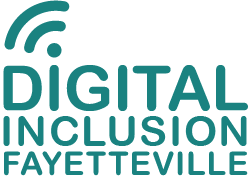As part of its planning efforts, the city of Fayetteville is working to improve equitable access to digital services and programs. To that end, Mayor Lioneld Jordan has convened a task force to study existing conditions, identify goals and offer recommendations for the city’s digital equity strategy. The task force is chaired by Michelle Gibeault, English and communication librarian for the University of Arkansas Libraries, and is seeking input from residents who can help align partnerships, identify opportunities for collaboration and guide program implementation. U of A students, faculty and staff are encouraged to participate.
“Partly as a consequence of our being a land-grant institution, our campus community is made up of individuals who possess the expertise, perspective, and energy we will need to be thorough and thoughtful about digital equity, which is about the availability and quality of our access to the internet,” said Gibeault.
Those who wish to participate are encouraged to complete a survey via the city’s website. Entrepreneurs, students and scholars of all ages, Lifeline subscribers, retirees, teachers, technical experts, broadband providers, communications media and residents interested in the quality and distribution of internet access are encouraged to take the survey. Participants will be asked to identify areas of interest related to broadband equity.
The task force will then form focus groups to study issues across the spectrum of digital inclusion. These topics will be introduced over time to the broader community. All community members will have the opportunity to participate, voice interests via multiple public engagement workshops and surveys, and attend presentations by guest speakers.
“I expect this Digital Inclusion Planning process to cover a number of separate but related initiatives under the digital equity umbrella,” said Jordan. “We will follow best practices of communities around the globe as we define Fayetteville’s Digital Inclusion Plan. The Digital Inclusion Plan will include public policy priorities for furthering digital equity in Fayetteville for consumers, citizens, students, job seekers and entrepreneurs so that we can advance digital equity in ways that will allow us to improve the lives of residents.”
